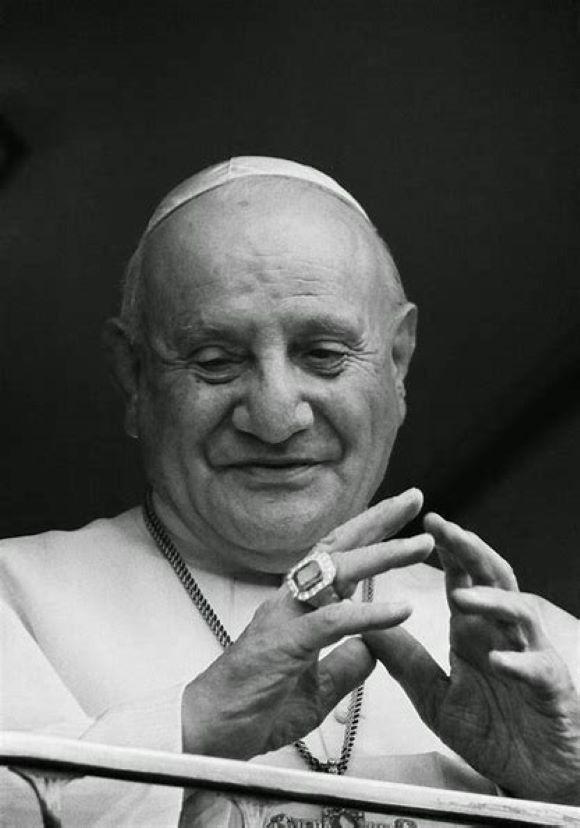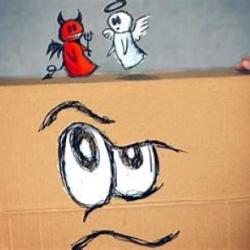So, You Have Faith. Can You Question or Doubt?
People are regularly confused between “questioning” and “doubting.” What complicates things is adding “faith” into the mix. Can I, as a person of faith, question? Can I have doubt? So, what do these words really mean?
Faith
To have faith is to have trust or confidence in something. “I have faith that the sun will come up tomorrow,” or “I have faith that the pound cake I’m making will turn out perfectly.” Having faith is not a thing you just **poof** have. Faith is something you practice, something that has been tested over time, something that you have come to rely on.
Question
To question does not mean you don’t believe in something. It means you are looking for a deeper answer or an answer you can comprehend. A perfect Biblical example is when Mary tells the angel Gabriel, “How can this be? I’m a virgin” (Luke 1:34) when he tells her that she will bear a son. Does Gabriel immediately cut her off, declare her unworthy for questioning his statement, and fly back to heaven? No. He doesn’t because her question is seeking more information. For example, “How can this physically happen to me? I don’t understand. Please explain it.” Not, “Gabriel, dude! You blew it! You’re waaay off base! You mean someone else. Try the Mary down the road.”

Doubt
To doubt is to be uncertain without having little or any hope of finding an affirmative answer. An example is when Gabriel told Zechariah that his wife, Elizabeth, was to have a son. Zechariah asked, “How can this be?” What proof is there for this? I am an old man, and my wife is beyond childbearing years” (Luke 1: 18). Mary also answered, “How can this be?” but here is the difference: Zechariah doubted. He wasn’t looking for a deeper answer or an answer you can comprehend, as you would in a question. No. He was doubting the angel and, by extension, what God could do. Zechariah was uncertain and did not have any hope of finding an affirmative answer. So, what happened to Zechariah? The angel took his power of speech away! He could no longer question what God could and would do in his life. That’ll teach him to doubt what God can do!
A Little Story
There was once a little farm boy who was remarkably ordinary. He did not shine in any respect. He was a little chubby, mediocre at math and language arts, and was not first-chair material as a musician. Later in life, he admitted that he became a priest because he found farm work very hard and tedious.
As a priest, he never felt holy enough, devoted enough, learned enough. He began to question not only what God had in store for him but if God had anything bigger for him in life. Notice that he never doubted God’s will for him; he simply asked for clarification—answers—to what God had in mind.
He was a humble man who kept asking God, questioning what He wanted, inquiring what the next thing God wanted of him. Then something happened. The boy-turned-priest began to act upon the nudges he was getting from God. He began to spend time strengthening his faith and tipping the scales toward solid questioning. The inquiries were no longer if God wanted something of the now bishop but when and how far he should go.
The chubby farm boy turned questioning priest turned bishop was none other than Angelo Roncalli, also known as Saint Pope John XXIII, sometimes known as the “accidental saint.” Throughout his life, Saint Pope John XXIII knew he wasn’t the biggest or brightest all-star. And that gave him the humility to listen to others. He took the time to understand the Turks when he was a delegate to Turkey. He understood the plight of the poor and those under dictatorship when he was a delegate to Bulgaria. He understood his own church from a layman’s perspective when he became Pope and “threw open the windows of the church so those inside can look out, and those outside can see in.”

So, What About Us?
What about us today? “I have faith, but sometimes I doubt if God hears me.” Do you? Are you doubting or questioning? You say you have faith. But do you have trust in God to do any and all things He wants to with you? If you really have faith, are you doubting or questioning? Are you saying, “I don’t know how God will do this in my life.” Are you giving Him the option to do whatever He wishes, when He wishes, and how He wishes? The hard truth is God does answer every prayer. Period. End of statement. The problem is it might not be the answer you wanted.
What Does That Mean to You and Me?
It means a lot to you and me. First, we all (me included) need to work on humility. If we are insisting God answer us on our terms, in the way we want, and when we want… Well, we are missing the point and painting ourselves into a corner of doubt of our own making—just like Zechariah. We are doubting that God hears us, cares about what we want (verses what we need), and if God has any viable part in our lives. We’re being petulant children wanting what we want on our terms. “I want that ball, and I want it now! I don’t understand why I have to wait! I don’t care if it’s my bedtime!”
Or we can question—just as Mary did—looking for the how of things. We respectfully toss the ball onto God’s court and say, “Your court, Your ball, Yours to make sense of and answer.” It takes the immense pressure off of you and gives it to the One who can answer your question in the best way possible.
But know going in—when God answers your question, He expects immediate action and immediate acceptance. Again, what did Momma Mary do? When Gabriel told Mary she’d have a son, the Father would be God, and oh yeah, by the way, your relative, Elizabeth, “…is going to have a child in her old age, and she who was said to be unable to conceive is in her sixth month. For no word from God will ever fail.” (Luke 1: 36-37) What does Mary do? She “got ready and hurried to a town in the hill country of Judea, where she entered Zechariah’s home and greeted Elizabeth.” (Luke 1:39-40) Mary didn’t wait, she didn’t make any excuses, she didn’t take time to plan the trip. No. She picked up and went to see Elizabeth.
So, do you have doubt (painting God into your own corner), or are you questioning and waiting for clarification? But more importantly, when God answers, will you be ready to say, “Yes. I’ll go, I’ll do. Put me in, coach! Just point me in the direction you want me to go in.”













